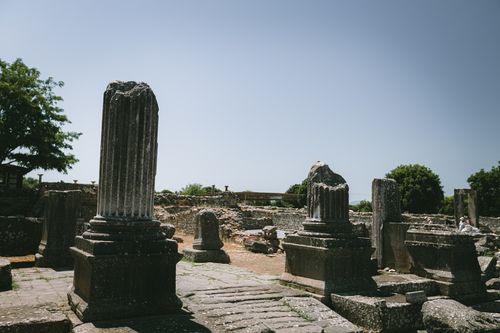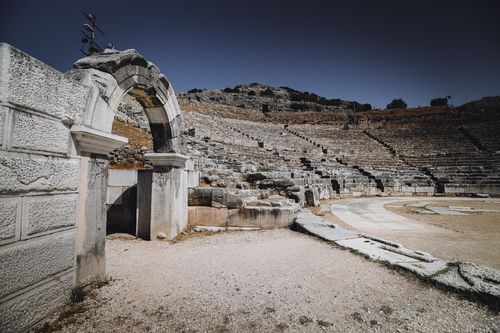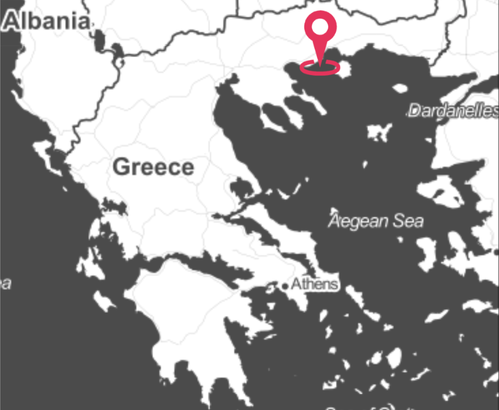The jailer called for lights, rushed in and fell trembling before Paul and Silas. He then brought them out and asked, “Sirs, what must I do to be saved?” They replied, “Believe in the Lord Jesus, and you will be saved—you and your household.” Then they spoke the word of the Lord to him and to all the others in his house.Acts 16:29-32
WATCH THE SERMONS
WATCH THE PODCASTS

Citizenship in Philippi
The accusation against Paul and Silas was that their message jeopardized Philippi's allegiance to Rome and needed to be dealt with swiftly. Paul and Silas were dragged before the officials. Even though it violated his rights as a Roman citizen, Paul was beaten and thrown into prison. Roughly ten years after his first visit and imprisonment, Paul's letter to the Philippians reminds the Christians in Philippi that their true citizenship is in heaven (Phil. 3:20).

A Legacy of Generosity
It is likely that the church in Philippi first met in Lydia's house. Moreover, Paul mentions more than once the church's generosity in Philippi (Phil. 4:15-18; 2 Cor. 8:1-5,11:9; Rom. 15:25-27). Even 60-90 years later, the church in Philippi was known for its faith, hospitality, and care for those in prison. Remains from church basilicas in Phillipi date to the 4th-6th centuries, signifying a strong Christian presence in Philippi for centuries after Paul visited.
VIDEO CONTENT
PHILIPPI
Approx. 10,000 People in Paul's Day
Named after Philip II, father of Alexander the Great. The Romans conquered the region in 168–167 BC, placing Philippi within the first district of the newly formed Roman province of Macedonia. The citizens of Philippi enjoyed the status of "ius italicum" which meant they had freedom from Rome's taxes, freedom to self-govern, and buying and selling property. The Philippians held that freedom in high honor, and their loyalty to Rome was unquestionable. Philippi's status as a free city only ensued if Philippi showed total allegiance to Rome.
Click the map to explore when Paul visited the city of Philippi and the other key locations in the book of Acts.
Named after Philip II, father of Alexander the Great. The Romans conquered the region in 168–167 BC, placing Philippi within the first district of the newly formed Roman province of Macedonia. The citizens of Philippi enjoyed the status of "ius italicum" which meant they had freedom from Rome's taxes, freedom to self-govern, and buying and selling property. The Philippians held that freedom in high honor, and their loyalty to Rome was unquestionable. Philippi's status as a free city only ensued if Philippi showed total allegiance to Rome.
Click the map to explore when Paul visited the city of Philippi and the other key locations in the book of Acts.

